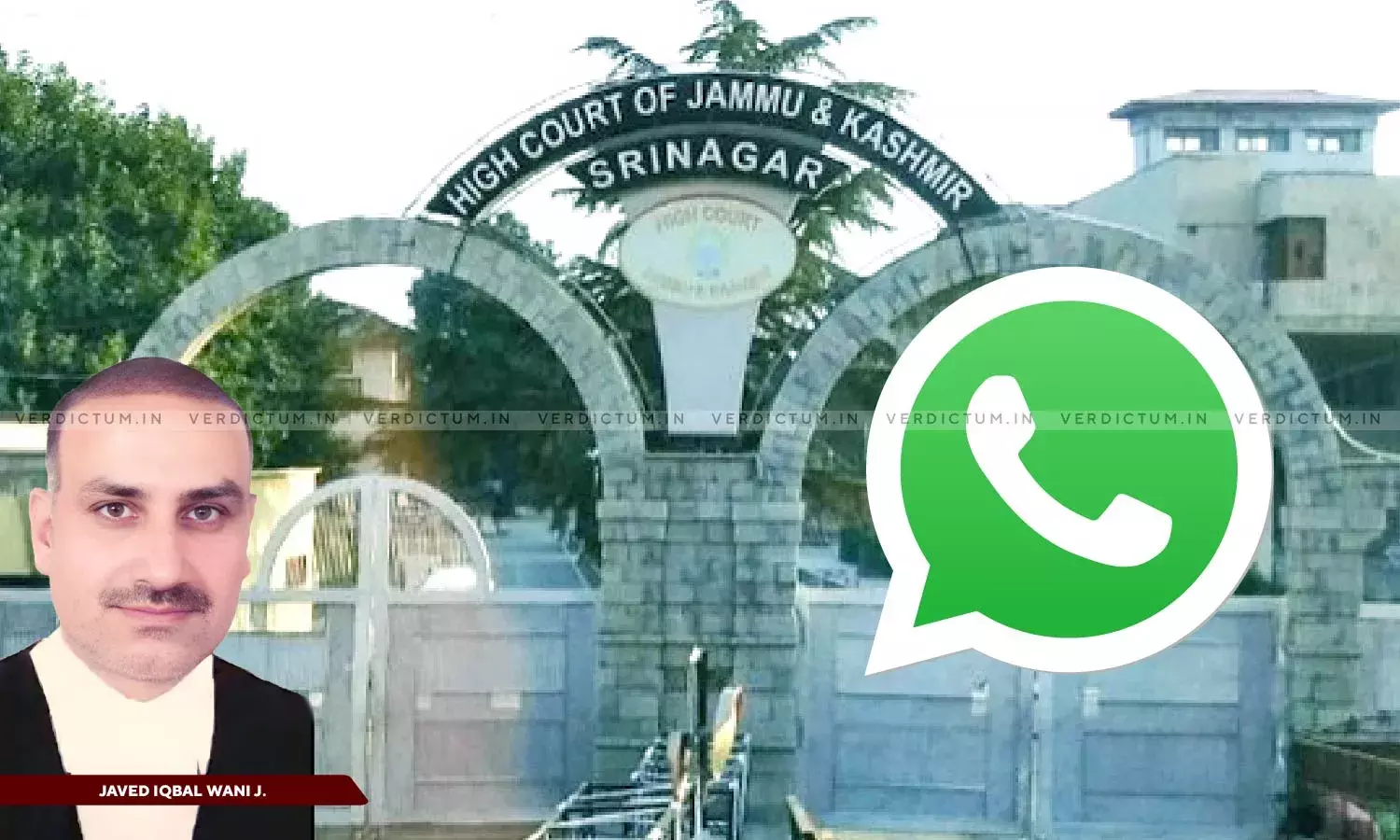FIR Can Be Registered On The Basis Of Information Received Through WhatsApp: J&K&L High Court
The Jammu and Kashmir and Ladakh High Court has established that it is permissible to register a First Information Report (FIR) based on information received via WhatsApp. This decision affirms that filing a complaint under Section 156(3) of the Criminal Procedure Code (CrPC) after notifying the police through WhatsApp constitutes sufficient compliance with Section 154(1) and 154(3) CrPC. The petitioners had filed a petition under Section 482 of the Cr.PC seeking to quash a complaint filed by the respondent under Section 156(3) Cr.PC before the City Munsiff Srinagar.
A Bench of Justice Javed Iqbal Wani held that “the filing of the complaint/application by the respondent herein and its entertaining by the Magistrate and passing of the impugned order cannot be found fault with. Even if it is assumed that the Whatsapp chats and the email aforesaid were not part of the complaint at the time of its filing before the Magistrate as at this stage while examining the validity of the complaint as also the impugned order, non-filing of the same before the Magistrate would be having no effect on the merits of the application now in view of the said material being available before this court.”
The case involved a property dispute among the parties, who were siblings with ongoing conflicts over their deceased father's properties.
Advocate Areeb Javid Kawoosa appeared for the Petitioners and Advocate Saqib Shabir appeared for the Respondent.
The petitioners argued that the complaints were an attempt to use criminal proceedings to resolve a private civil family dispute, as they were unaware of the last application until summoned by the Crime Branch. However, the respondent asserted that she had followed the correct procedure by initially reporting her grievances to the police and providing evidence of these reports through WhatsApp chats and emails. The complaints also alleged that the petitioners had committed criminal acts.
The complainant had forwarded her complaint to the Station House Officer (SHO) of the local police station via WhatsApp chats, and these chats indicated that she had submitted a complaint and requested the registration of a case. The SHO acknowledged the complaint and confirmed its legal processing.
The Court considered this as substantial compliance with Section 154(1) and 154(3) CrPC, stating that the complainant had fulfilled the requirements for invoking Section 156(3) CrPC. The court added, “The aforesaid facts essentially amounts to substantial compliance of section 154 (1) and 154 (3) Cr.PC and as such the complainant respondent herein can safely be said to have complied with the said requirement for invoking the provisions of section 156 (3) Cr.PC, so much so that compliance of filing an affidavit along with application filed under section 156 (3) by the complainant respondent also being sine qua non under and in terms of the principles of law laid down in the Priyanka Srivastava supra also seemingly has been complied with by the complainant respondent.”
The Court emphasized that criminal proceedings should not be thwarted at the initial stage, with quashing of a complaint/FIR being an exception, referencing the Neeharika Infrastructure Private Limited v. State of Maharashtra case.
In light of these findings, the Court dismissed the petition, deeming it lacking in merit.
Cause Title: Dilshad Sheikh & Ors. v. Sabha Sheikh
Click here to read/download Judgment



